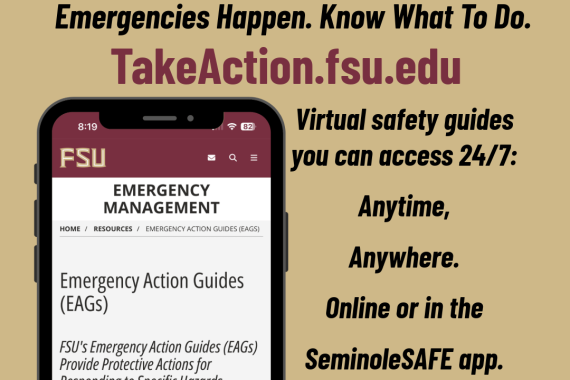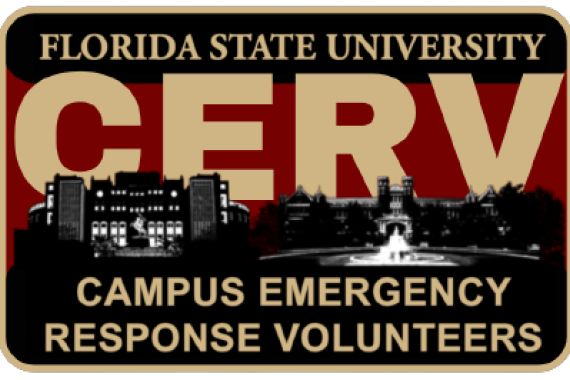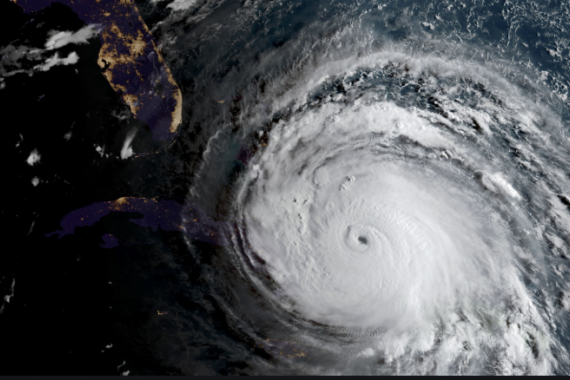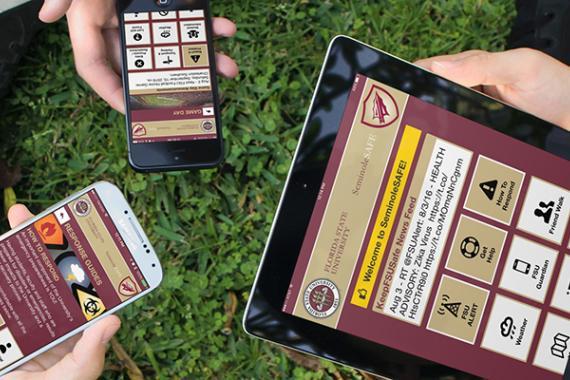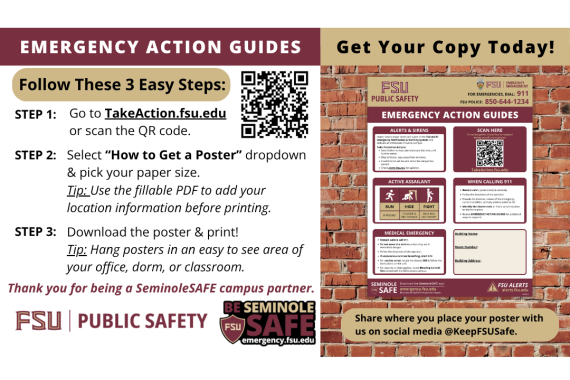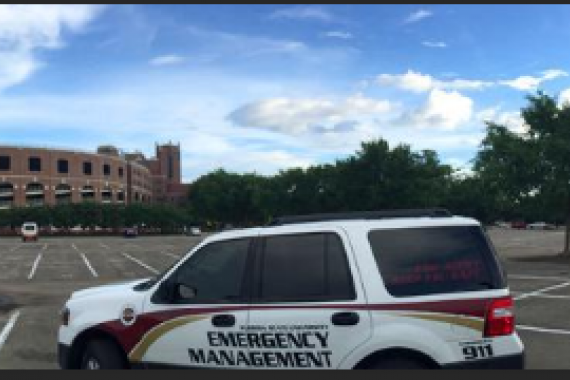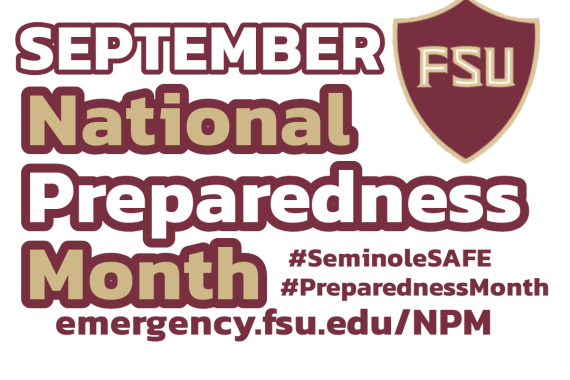WHAT IS A TORNADO?: A tornado is a violent column of rotating air that comes down from a thunderstorm to reach the ground. Tornadoes usually last only a few minutes, but they can cause much damage as they travel along the ground. Some tornadoes can travel for many dozens of miles; other tornadoes may appear to skip above the ground for a few moments.
HOW OFTEN DOES FSU GET A THREAT OF TORNADOES? Most tornadoes in Florida occur in June, July and August. However, the strongest tornadoes in Florida usually occur in February, March and April. The Florida State University averages about 11 tornado watches and 3 tornado warnings per year.
HAS FSU EVER BEEN STRUCK BY A TORNADO? To the best of our knowledge, The Florida State University has never been directly impacted by a declared tornado. In April 2009, there was extensive damage at the Southwest Campus (Alumni Village, Golf Course, Morcomm Pool) area, but that was determined to be straight-line winds.
HOW BAD ARE THE TORNADOES AROUND HERE? When most people think about tornadoes, they imagine the large monsters that destroy pretty much everything in their path. If you think further, however, you'll remember that most of those occur in the Midwestern United States (Oklahoma, Kansas, etc.). Just like there are different categories to hurricanes, there are different sizes of tornadoes, ranked by the Enhanced-Fujita (EF) Scale. Most of the tornadoes we experience around here are EF-0 or EF-1. More rare, but possible, are EF-2 tornadoes. There have been 18 recorded tornado touchdowns (EF-0 to EF-2) in Leon County since 1945. Anything larger is extremely rare for this part of Florida, and none have occurred in Leon County.
WHAT IS THE ENHANCED-FUJITA SCALE? Originally developed in 1971 by Dr. T. Theodore Fujita at the University of Chicago and enhanced in 2007, the EF Scale is used to rate a tornado's wind speed by the amount of damage it creates. This scale should be used with caution because we still lack the technology to accurately measure tornado wind speeds. Also, the same amount of damage may occur due to different wind speeds because of other factors like how well-built a structure is, wind direction, wind duration, flying debris and other factors.
| Scale | MPH | Typical Damage |
| EF-0 | 65-85 | Gale Tornado: Some damage to chimneys. Tree branches broken off. Shallow rooted trees uprooted. |
| EF-1 | 86-110 | Moderate Tornado: Peels surface off roofs. Mobile homes overturned. Moving autos pushed off roads. |
| EF-2 | 111-135 | Signficant Tornado: Considerable damage. Roof torn off wood-frame houses. Large trees snapped or uprooted. Light-object projectiles generated. |
| EF-3 | 136-165 | Severe Tornado: Severe damage. Roofs and some walls torn off well-constructed homes. Most trees in forests uprooted. Heavy cars lifted off ground. |
| EF-4 | 166-200 | Devastating Tornado: Well-constructed homes leveled. Structures blown off weak foundations. Cars thrown and large projectiles generated. |
| EF-5 | 200+ | Incredible Tornado: Strong frame houses lifted off foundations and disintegrated. Autmobile-sized projectiles flying through the air in excess of 100mph. Trees debarked. |
WHAT'S THE WORST WE'D EXPECT AT FSU?
Given the historical averages of tornadoes experienced in this area, we would consider a direct impact of an EF-2 tornado to campus our "worst case scenario." Given how well-built most of our campus is, with fully-reinforced masonry buildings, there is little threat of severe structural damage. We would not expect any total roof losses, collapsed walls, or other catastrophic damage that you might imagine. More likely is broken windows, a few loose bricks, small pieces of roofing loss, and broken tree limbs. Yes, even that much damage is certainly a dangerous situation and that is why we still take tornadoes seriously.
HOW WILL WE KNOW A TORNADO WARNING IS ISSUED?
The Florida State University will issue an FSU ALERT emergency notification message for ALL Tornado Warnings that include campus. This includes, but is not limited to: indoor and outdoor sirens, sms text messages, e-mails, blue lights, and more. Learn about the FSU ALERT Emergency Notification System here.
WHAT DO WE DO WHEN A TORNADO WARNING IS ISSUED?
When a tornado warning is issued for campus, immediately seek shelter in the nearest well-constructed building, away from doors and windows. Try to reasonably place as many walls between you and the outside as possible. Reasonable does not necessarily mean burying yourself in a closet or under your bed. Seek more information. Go to alerts.fsu.edu to obtain the details about the warning, including: estimated arrival time, direction, duration, and estimated expiration time. Once the warning has expired, and there is no evidence of damage, you may proceed with your normal course of business.
WHAT IF A TORNADO ACTUALLY HITS CAMPUS? If you see that damage has occurred, stay indoors until further instructions are provided. Follow-up FSU ALERT messages will be issued with more information. By all means, if there are any injuries, call 911 or FSU Police at 644-1234 immediately. Otherwise, keep these phone lines clear for real emergency calls. Report damages to Facilities by calling 644-2424

